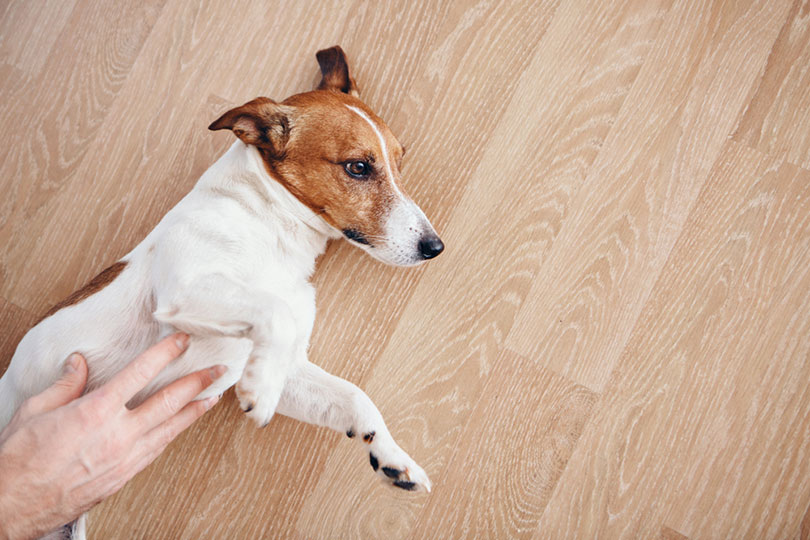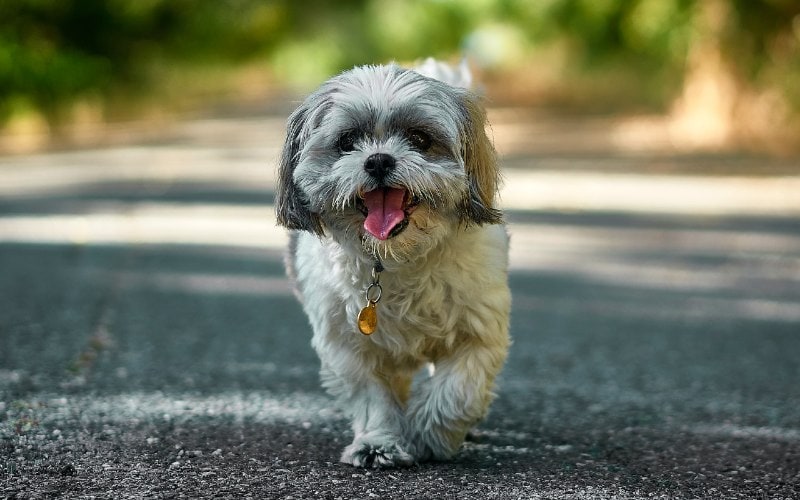How Big Do Basset Hounds Get? (Growth and Weight Chart)
Updated on
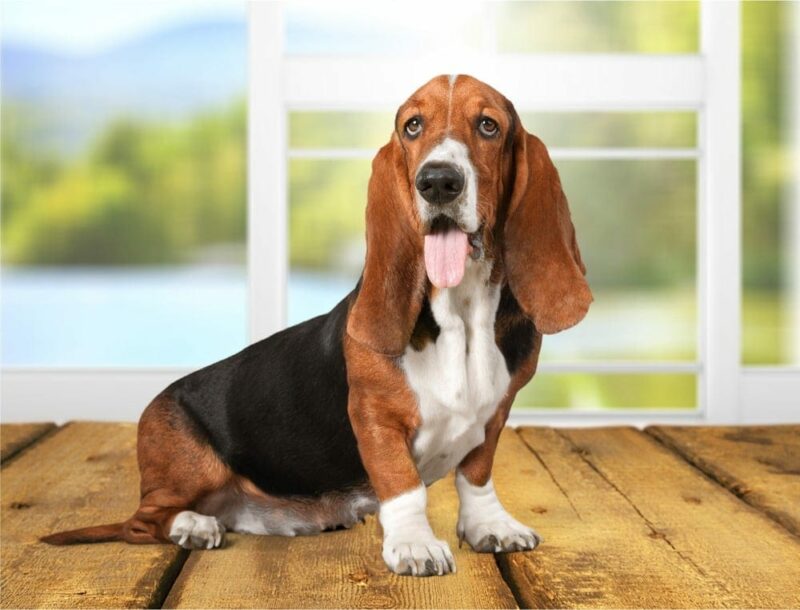
Basset Hounds are well known for their droopy expressions, long ears, laid-back attitude, and the fact that they will be completely lazy if you let them. They are also loyal, stubborn, loving, independent, and attached to their pet parents.
However, have you ever wondered how big a Basset Hound will get? How much will your Basset Hound puppy weigh? When will they stop growing? These are a few of the questions that many potential pet parents want to know. We’ll answer these questions and more in the guide below.
Facts About Basset Hounds
Basset Hounds are lovable, stubborn dogs that will make any family or individual a great pet. At full growth, you can expect your Basset Hound to have a body length of between 26 and 35 inches, reach 11 to 15 inches in height, and weigh between 40 and 65 pounds.
All of these sizes, of course, will depend on several factors, such as your Basset Hound’s age, lifestyle, diet, ancestors, overall health, and more. Also, the male Basset Hounds are usually heavier than the females.
Basset Hounds have a life expectancy of around 12 to 13 years but have been known to live longer. It will greatly depend on their health.
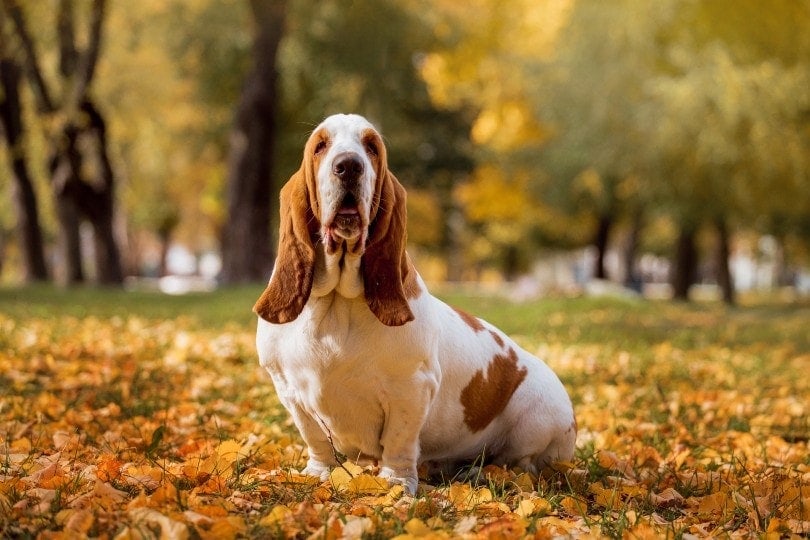
Basset Hound Size and Growth Chart
Your Basset Hound’s size and growth should be on average with the chart below. However, the chart below is an approximate one adopted from the limited information available, and you should consult with your vet to determine if your dog is healthy, happy, and on track with their growth and development. A more accurate individual monitoring weight chart is available at Waltham Petcare Science Institute site.
| Age | Weight Range |
| 3 months | 15 to 25 pounds |
| 4 months | 20 to 30 pounds |
| 5 months | 25 to 40 pounds |
| 7 months | 35 to 50 pounds |
| 10 months | 40 to 55 pounds |
| 12 months | 45 to 63 pounds |
When Does a Basset Hound Stop Growing?
Your Basset Hound should reach their full size and height between 12 and 18 months old, but this may vary depending on the individual dog and their gender. However, they will continue to bulk up and gain muscle mass until around 2 years of age. Because this breed is compact but bulky, it often takes them longer to reach full growth than other medium dog breeds.
In most cases, a Basset Hound will often reach their full height before they reach their full size.
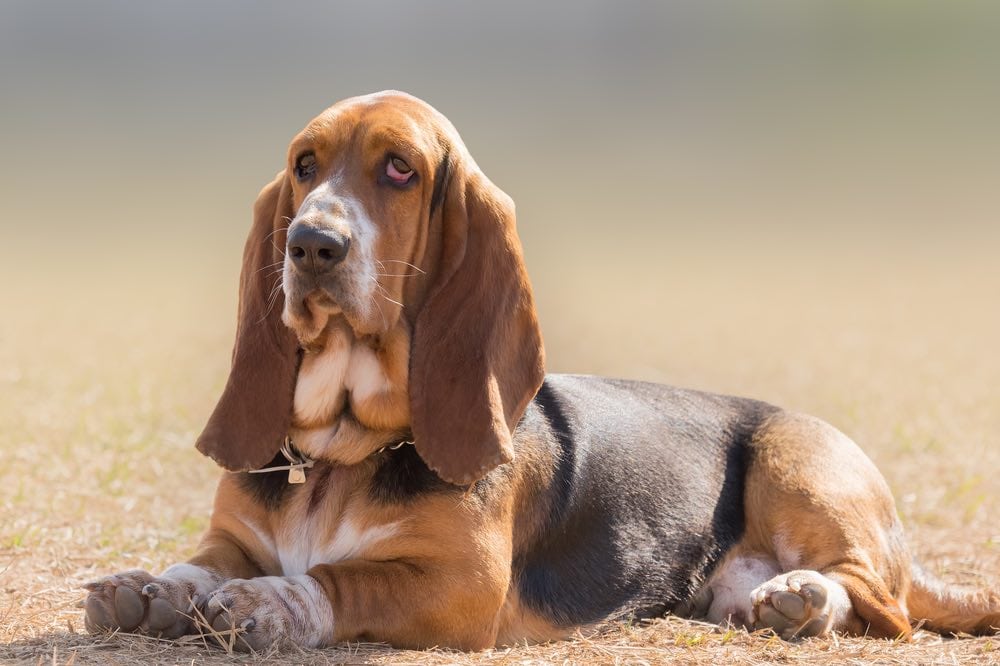
Factors Affecting the Size of a Basset Hound
As with any breed, there are going to be certain factors that affect the size of your Basset Hound. The size of your Basset Hound is mostly due to genetics, but there are other factors to consider.
How much you feed your Basset Hound can be a factor. Since they are so short, Basset Hounds tend to become overweight or obese easily, so the right type and amount of diet is essential. Exercise also plays a key role in the size of your furry friend. Since Basset Hounds tend to be lazy, they aren’t willing to exercise unless made to.
While you need to exercise your Basset Hound by walking them once a day, it’s also important not to over exercise this breed, especially when the dog is a puppy, as it could hurt their growing joints. Speak to your vet about an adequate exercise regimen for your puppy based on their age.
Ideal Diet for Maintaining a Healthy Weight
Puppy food should only be given to your Basset Hound during their first year of life. Then, you need to switch the dog to high-quality adult dog food. Follow the feeding guidelines based on the manufacturer’s recommendations, splitting the food into two separate meals.
Since they’re prone to obesity, Basset Hounds should follow a feeding schedule. Although some dogs may not become obese from free-feeding, some Basset Hounds will continue to eat food even if they’re not hungry. If your pet is becoming overweight, cut back on the food and treats and ask your vet for advice.
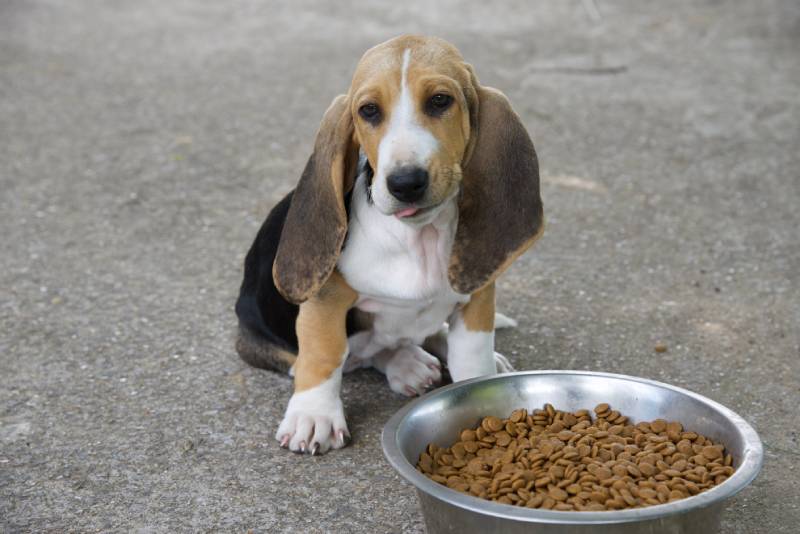
How to Measure Your Basset Hound
If you’re looking to measure your Basset Hound, you can have him standing on all four paws, then measure from the highest point of their back and down to the ground. You can start at the shoulder blades. If you’re unsure how to get an exact measurement of your canine pal, you can take them to the vet, who can provide precise measurements and let you know if your Basset Hound is in the healthy range for their age.
Most pet parents do not have a scale large enough to weigh Basset Hounds, but you can weigh yourself on a standard scale. Then, you can pick your dog up and stand on the scale. Subtract the first measurement from the second, and you’ll know your dog’s weight. If your big pup is straining your back when they’re picked up, you can ask a friend or family member to weigh them.
Remember, the growth and weight chart are just averages. The measurements and weight will differ from dog to dog, just as they would with humans. Don’t be concerned if your dog is a little off the charts. However, if they seem significantly lighter or heavier than the measurements, it’s best to visit your vet for a complete examination. They can determine if the weight problem is due to an underlying health concern.
Conclusion
Basset Hounds are medium to large-sized dogs that have short legs and heavy bodies. As with any dog, you need to give a bit of leeway when following the growth chart above. Ensure you feed your dog a high-quality dog and try to avoid overfeeding.
If you feel that your Basset Hound is smaller than they should be or that the dog is becoming obese, talk to your vet for diet recommendations or see if there is an underlying cause that needs to be addressed.
You might also like:
- Do Basset Hounds Howl a Lot? Reasons & Tips
- 12 Basset Hound Pros and Cons: What to Know Before You Get One
Featured Image Credit: Billion Photos, Shutterstock



